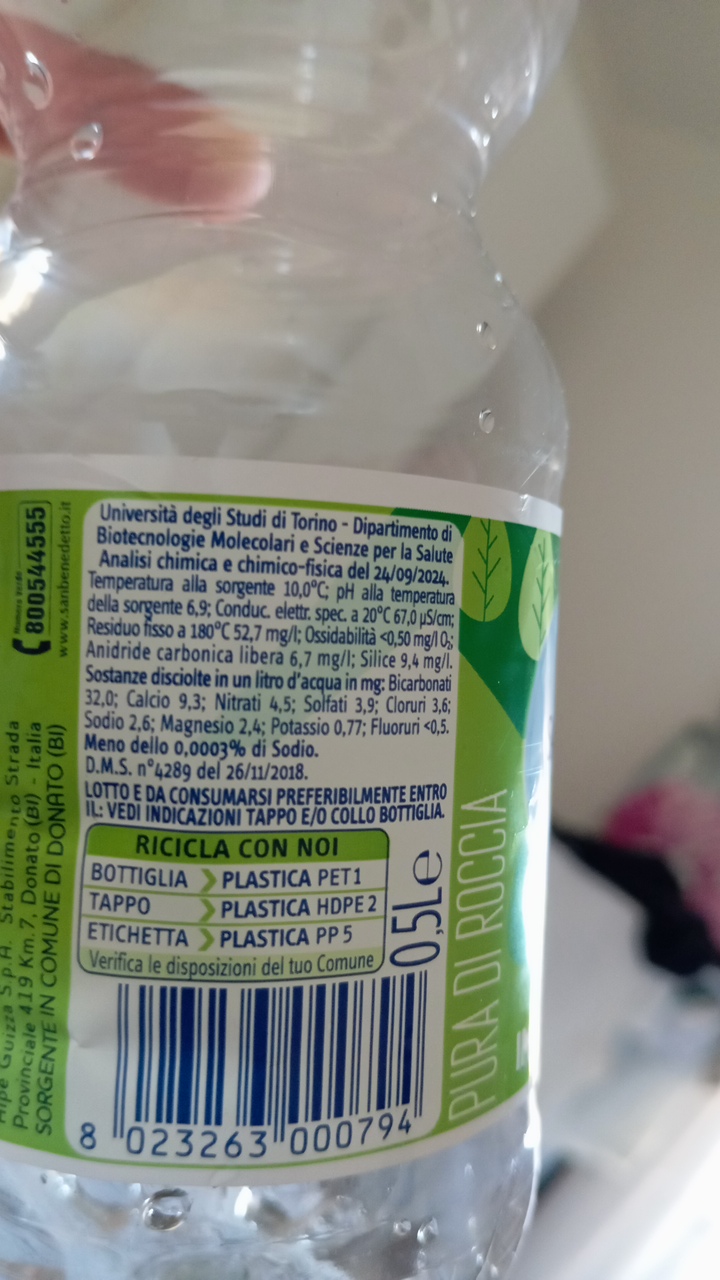
Barcode: 8023263000794
pura di roccia
HALAL
📝 Reason: Analyzing each ingredient, all are basic minerals or mineral salts, which are Halal as per Islamic dietary regulations. None are animal-derived, nor are they Haram ECode additives or meat. The provided Halal/Haram ECode lists do not apply. Thus, this product is Halal under Quran 5:3 and international Halal standards (IFANCA, MUIS, www.foodchemadditives.com).
🏷️ Category: Water
📄 Certificates: Vegetarisch, Vegan
Ingredients:
Details
Pura Di Roccia: Understanding Its Halal Status
Pura Di Roccia is a well-regarded water product, but for many consumers, determining its Halal status is crucial. Whether for personal health choices, dietary laws, or religious beliefs, knowing whether a product is Halal is paramount. In this post, we will delve into Pura Di Roccia’s Halal status, analyze every ingredient and E-number, and provide you with comprehensive insight into this product.
What is Halal?
The term ‘Halal’ represents what is permissible or lawful in Islamic law. This includes food products that meet certain dietary restrictions outlined in the Quran. Specifically, Quran 5:3 outlines the types of food that are considered acceptable for Muslims. Various authorities have also established international Halal standards, which Pura Di Roccia adheres to.
Pura Di Roccia Ingredients
The ingredients in Pura Di Roccia are as follows: bicarbonati, calcio, nitrati, solfati, cloruri, sodio, magnesio, potassio, fluoruri, and silice. Let’s dissect each ingredient with respect to its Halal status:
- Bicarbonati: Sodium bicarbonate, commonly known as baking soda, is inherently mineral-based and Halal. For further information, you can reference sources such as EHalal and FoodChem.
- Calcio (Calcium): Calcium is a naturally occurring mineral that is entirely Halal. It is not derived from animal sources and is crucial for bodily functions. More details can be found here.
- Nitrati (Nitrates): Nitrates are typically Halal as they are mineral salts. Ensure they do not come from forbidden sources or mix with Haram substances. Check more about it here.
- Solfati (Sulfates): These are mineral salts and are mostly Halal-friendly. You can learn more from EHalal.
- Cloruri (Chlorides): Common examples like sodium chloride (table salt) are Halal. Find more about them here.
- Sodio (Sodium): Sodium in its elemental form and common salts is Halal. Additional details are available here.
- Magnesio (Magnesium): Magnesium is another mineral that is considered Halal. More can be found at EHalal.
- Potassio (Potassium): Essential for health and entirely Halal. More about Potassium can be found here.
- Fluoruri (Fluorides): These are mineral ions and, when used in minimal amounts, are Halal. More information is available here.
- Silice (Silica): Silicon dioxide is a naturally occurring mineral and remains Halal across applications. Learn more here.
Certification and Brand Context
Pura Di Roccia has received several certifications that enhance its appeal to health-conscious and ethical consumers. The certifications include both Vegetarian and Vegan labels, ensuring it is suitable for a variety of dietary preferences. The brand is committed to meeting and exceeding Halal standards set by recognized authorities.
It’s essential to note that none of the ingredients in Pura Di Roccia are animal-derived, nor do they contain any Haram E-code additives or meats. This aspect aligns well with Islamic dietary regulations, making it clear that the product is Halal under Quran 5:3 and satisfying the international Halal standards.
Conclusion
In summary, Pura Di Roccia is not only a healthy and refreshing choice but also a Halal-certified product that meets strict dietary requirements. With its commitment to quality and compliance with Halal standards, consumers can enjoy this product with peace of mind. Whether you are looking for a refreshing water option or aligning your consumption with your values, Pura Di Roccia proves to be an excellent choice.
